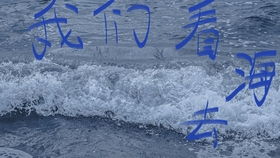Content:
Introduction: Fishing has always been a cherished pastime for me. It provides a serene escape from the hustle and bustle of daily life, allowing me to connect with nature and unwind. Over the years, I have developed a set of techniques and tips that have helped me become a more skilled angler. In this article, I will share my daily fishing techniques and provide some valuable insights for fellow enthusiasts.
Choose the Right Equipment: The first step in mastering the art of fishing is to ensure you have the right equipment. Here are some essential items you should consider:
a. Rod and Reel: Select a rod and reel that match the type of fishing you plan to do. For instance, a spinning rod and reel are suitable for freshwater fishing, while a baitcasting rod and reel are better for saltwater fishing.
b. Line: Choose the appropriate line strength and type based on the fish you're targeting. Monofilament is versatile and easy to work with, while fluorocarbon is nearly invisible to fish and has a lower stretch.
c. Lures and Bait: Invest in a variety of lures and bait that mimic the natural prey of the fish you're targeting. Live bait can be effective, but artificial lures can also be very productive.
Select the Right Location: Finding the perfect fishing spot is crucial to a successful day on the water. Here are some tips for choosing the right location:
a. Research: Use online resources, fishing maps, and local advice to identify prime fishing spots. Look for areas with good cover, structure, and a history of fish activity.
b. Time of Year: Different fish species are more active during specific times of the year. For example, bass are more likely to bite during the spring and summer months, while trout are more active in the spring and fall.
c. Tides and Weather: Pay attention to the tides and weather conditions. Fish are more likely to bite during certain phases of the tide, and certain weather patterns can affect their behavior.
Master the Art of Casting: Casting is a fundamental skill in fishing. Here are some tips to improve your casting technique:
a. Grip: Hold the rod with a comfortable grip, ensuring you have a good control over it.
b. Timing: Learn to identify the optimal moment to release the line, which is often when the rod is fully loaded.
c. Distance and Accuracy: Practice casting at various distances and targets to improve your accuracy.
Understand Fish Behavior: To become a successful angler, it's essential to understand the behavior of the fish you're targeting. Here are some key points to consider:
a. Feeding Patterns: Fish often feed during certain times of the day, such as early morning, late afternoon, or during low-light conditions.

b. Movement: Pay attention to the fish's movement in the water, as it can provide valuable clues about their location and feeding behavior.
c. Environmental Factors: Observe the environmental factors that may affect fish behavior, such as water temperature, clarity, and vegetation.
Patience and Persistence: Fishing is a game of patience. Sometimes, it can take hours to catch a fish. Here are some tips to help you stay focused and persistent:
a. Take Breaks: Rest your eyes and arms periodically to maintain your concentration.
b. Adapt: Be prepared to change your approach if the fish are not biting. This may involve adjusting your lure, bait, or technique.
c. Stay Positive: Maintain a positive mindset and remember that fishing is a rewarding experience, even on days when the fish are not cooperative.
Conclusion: Fishing is a skill that takes time and practice to master. By following these daily techniques and tips, you can improve your chances of success on the water. Remember to always respect the environment and the fish you're targeting. Happy fishing!












